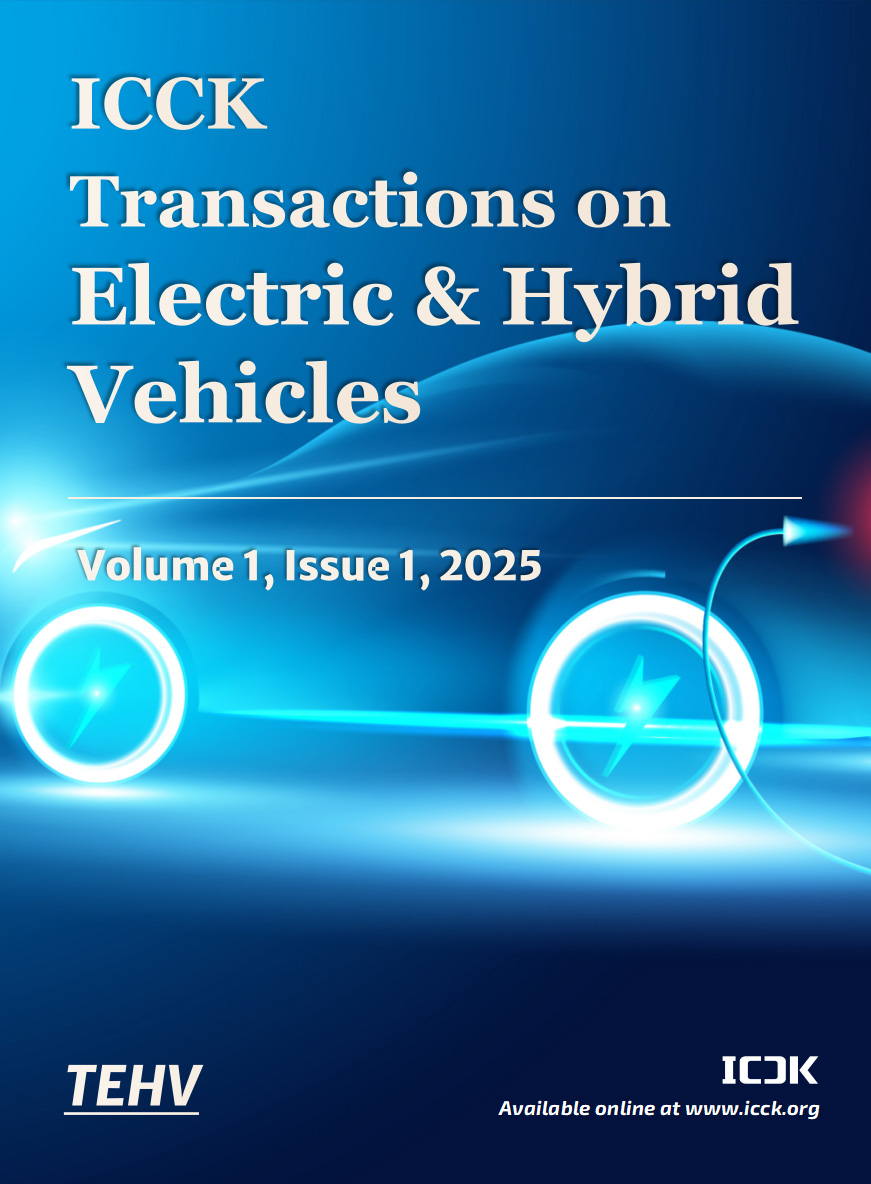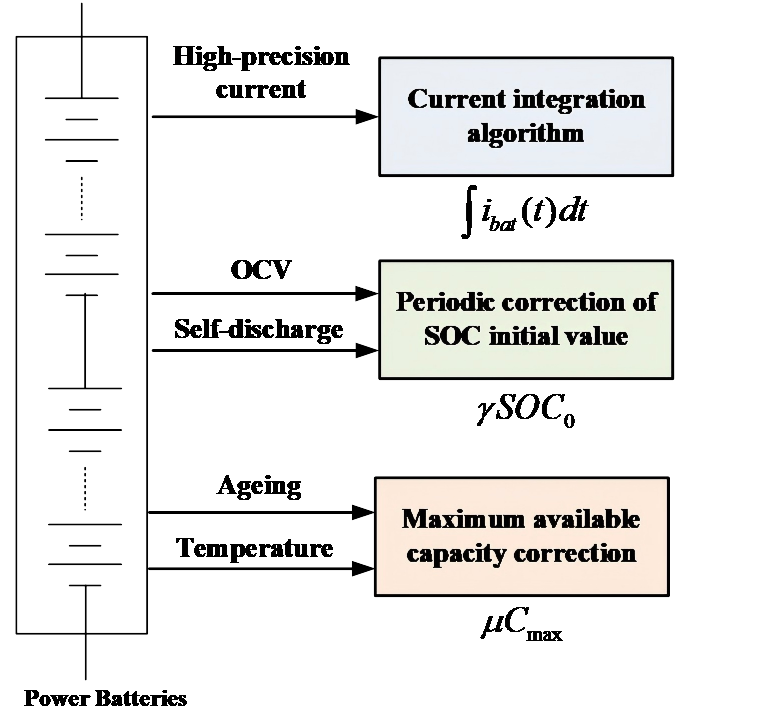Abstract
The Coulomb counting method is simple and effective in terms of state of charge (SOC) estimation of lithium-ion batteries. However, if the current measurement is not accurate, it will cause a cumulative calculation error, which will gradually increase with the time. And if the ambient temperature changes, the available capacity and initial SOC of the battery will also change. In order to solve the shortcomings of the traditional Coulomb counting method of SOC estimation, an improved method was proposed in this paper by taking into account the influence of battery temperature and aging on SOC. It can correct the initial value of SOC and the maximum available capacity of the battery more accurately, thus it solves the cumulative error problem, and improves the SOC estimation accuracy. A simple, accurate, and easy-to-implement method of battery SOC estimation is provided for the battery management system, which has practical application value.
Keywords
SOC estimation
coulomb counting method
electric vehicles
battery management system
Data Availability Statement
Data will be made available on request.
Funding
This work was supported by National Natural Science Foundation of China under Grant 62203271; and Natural Science Foundation of Xinjiang Uygur Autonomous Region under Grant 2022D01C462, which are gratefully acknowledged.
Conflicts of Interest
The authors declare no conflicts of interest.
Ethical Approval and Consent to Participate
Not applicable.
Cite This Article
APA Style
Zhang, Q., Fu, X., & Pei, W. (2025). Coulomb Counting Method based SOC Estimation of Lithium-Ion Batteries Considering Battery Temperature and Aging. ICCK Transactions on Electric and Hybrid Vehicles, 1(1), 4–11. https://doi.org/10.62762/TEHV.2025.326438
Publisher's Note
ICCK stays neutral with regard to jurisdictional claims in published maps and institutional affiliations.
Rights and Permissions
Institute of Central Computation and Knowledge (ICCK) or its licensor (e.g. a society or other partner) holds exclusive rights to this article under a publishing agreement with the author(s) or other rightsholder(s); author self-archiving of the accepted manuscript version of this article is solely governed by the terms of such publishing agreement and applicable law.


 Submit Manuscript
Edit a Special Issue
Submit Manuscript
Edit a Special Issue

